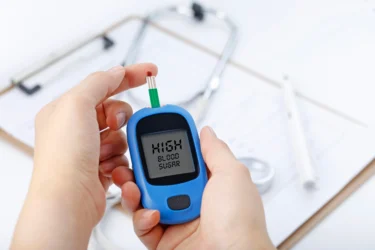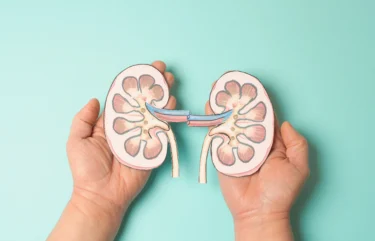Hibiscus: Uses, Benefits, Side Effects and More!
By Dr Anuja Bodhare +2 more

Get,

to manage your symptom
Get your,


4 Cr+ families
benefitted

OTP sent to 9988776655



You’ve successfully subscribed to receive
doctor-approved tips on
Whatsapp

Get ready to feel your best.

Hi There,
Download the PharmEasy App now!!


Register to Avail the Offer
Send OTPBy continuing, you agree with our Privacy Policy and Terms and Conditions

Hi There,
Sign up on PharmEasy now!!
Trusted by 4 crore+ families

OTP sent to 9988776655



You have unlocked 25% off on medicines




Code: NU25

Comments


Leave your comment here
By Dr Anuja Bodhare +2 more
Table of Contents
Hibiscus, commonly called Roselle, belongs to the family Malvaceae. Hibiscus has over 300 species of flowering plants, and one of them is Hibiscus sabdariffa Linne. It is considered a multipurpose plant that may have various health benefits. Hibiscus is a perennial flowering plant grown throughout the seasons. The shrub originated in Africa and is planted worldwide in tropical and subtropical regions of India, China, Sudan, Malaysia, Taiwan and many other countries1,3. Hibiscus is cultivated for flowers, leaves, stems, seeds and roots. Hibiscus flowers and seed oils are widely used in food, cosmetic, and pharmaceutical formulations. Hibiscus has medicinal value, which has been referenced in Ayurveda and the Chinese medicine system. It is commonly called Lalambari or Gudhal in Hindi and Jaswandh in Marathi1,2.

Did you know?
Hibiscus has good nutritional value, which is given below
1. Fat:
2. Protein:
3. Vitamin C:
4. Calcium:
5. Iron:
6. Thiamine:
7. Riboflavin:
8. Niacin:
According to a study, regular consumption of hibiscus tea potentially lowered the blood pressure of a hypertensive patient as compared to the initial dose of the standard medication to lower the BP. So, hibiscus tea might be useful to bring down high BP with the avoidance of side effects of the medications used to treat hypertension12.
Dr. Siddharth Gupta, B.A.M.S, M.D (Ayu)
The whole plant of hibiscus, including the flower, stem, leaves, roots and seeds, has beneficial properties1.
In Egypt and Sudan, tea extracted from a part of the hibiscus flower is used as a refrigerant to lower body temperature. This preparation is known as karkade.
Dr. Rajeev Singh, BAMS
Hibiscus may have the following potential uses that might benefit various health conditions.

Hibiscus calyx juice might be beneficial for cancer. It may show an antiproliferative (reducing cancer cell spread) effect and has antioxidants which may perform free radical scavenging activities. The human cell line studies by Akim et al. 2011 have shown that hibiscus juice may cause cancer cell death. It might be considered that hibiscus may have potential uses in cancer-related diseases1,2. However, these studies are insufficient and require more human trials to support the potential use of hibiscus for cancer management in humans. Cancer is a serious medical condition and may require a qualified doctor for proper diagnosis and treatment. Therefore, seeking medical advice from a doctor before consuming hibiscus juice is preferable.

The efficacy of hibiscus in the management of insulin resistance and diabetes mellitus type 2 was studied in an animal model (Peng CH. et al. 2011). The results revealed a significant reduction in blood sugar levels. It also showed that the hibiscus extract might have anti-insulin resistance properties (shows an insulin-like response), decreasing high blood sugar and insulin levels4. These studies are insufficient as these studies are not done on humans. However, more studies on humans are required to back this claim. Therefore, it is essential to first speak to your concerned doctors and only have hibiscus as a herb.

Hibiscus leaves and flowers may have beneficial properties for hair health. It might be helpful in circulating the blood to hair follicles. The leaves and flowers of hibiscus contain natural pigments, antioxidants and vitamins that might be useful for hair health5,6. According to animal studies done by N. Adhirajan et al. 2003, the topical application of leaf extract and gentle rubbing action on the skin enhanced blood circulation; this may have some effect on hair growth. This study also mentions that the hibiscus leaf extract might directly impact hair follicles, improving hair condition5,7. These studies are carried out on animals and not done on humans. Hence, this information is insufficient. We require more studies on humans back above claim. So, it is essential to first speak to your concerned doctors and only use hibiscus for hair health.

Hibiscus plants are rich sources of mucilages, which are complex polysaccharides. The plant’s leaves were traditionally used to manage burning sensations and skin diseases. It may have a skin-soothing and moisturising effect. The hibiscus mucilage extract contains glycerine, which may show the highest skin moisturising effect8. There is a need for more studies to establish the positive effect of hibiscus on skin-related problems. Hibiscus should not be used to self-medicate without consulting a doctor.

Hibiscus may have potential uses in weight management. In animal studies conducted by Hansawasdi et al. 2003, hibiscus tea showed blocking of sugars and starch absorption, which might benefit weight loss. The ability of hibiscus extract to maintain weight might be due to its polyphenols and flavonoids, which might decrease the accumulation of fat and, thus, maintain body weight9. Unfortunately, these studies are insufficient and more studies are needed to support the potential use of hibiscus for weight loss management in humans. Therefore, consult a doctor before having hibiscus tea to keep a check on your weight.

The hibiscus extract may have a beneficial effect on kidneys. It might reduce serum triglycerides, total cholesterol, and lipids. hibiscus may be beneficial in lowering oxidative damage to kidneys. Consumption of hibiscus tea might produce a uricosuric effect that might be helpful in the excretion of uric acid through urine. This may benefit the deposition of calcium crystals in kidneys and thus, managing kidney stones10. The information is not sufficient and further studies are required to support the potential use of hibiscus to overcome kidney-related issues in humans.

Though there are studies showing the benefits of hibiscus in various health conditions, these are insufficient, and there is a need for further studies to establish the true scope of the benefits of hibiscus on human health. Every person may respond differently to hibiscus herbal preparations. Therefore, it is important to consult a doctor before using hibiscus for any medical condition.
Various parts of hibiscus are used in the following ways:
People should consult a doctor before taking hibiscus herbal supplements. We recommend that you do not change or discontinue your ongoing medications with herbal preparations without consulting a qualified physician.
Before consuming any herb, one should consult an Ayurvedic physician because the herbs may have specific side effects. The side effects of hibiscus are as follows:
However, if any such side effects are observed after having hibiscus, please get in touch with an Ayurvedic physician who advised you to have the herb. They will provide the appropriate treatment to overcome the side effects.
Also Read: Kokum (Garcinia Indica): Uses, Benefits, Side Effects and More!
People should take precautions while consuming Hibiscus extract, specifically for patients with heart and kidney-related diseases9,10.
Patients with high blood pressure receiving non-potassium-sparing diuretics (medicines that help excrete more urine and treat oedema) should take precautions. If the dose increases the prescribed amount, the diuretic effect of Hibiscus extract might exert pressure on the blood vessel, causing death caused by loss of heart function8,10.
Patients with kidney stones or kidney dysfunction should consult a doctor about using Hibiscus juice; consumption in high amounts may lead to high creatinine levels in the blood resulting in a loss of kidney functioning10.
There is insufficient information about the safe use of hibiscus for pregnant women. It is better to take doctor’s advice during this condition5.
The safety of taking hibiscus extract by lactating mothers is questionable because consumption during lactation might increase weight gain after birth and delay the onset of puberty in children. Lactating mothers should take advice from their doctor before using HIbiscus10. If you are suffering from any disease condition, or suffer from specific allergies, consult your doctor about what foods and vegetables to avoid. Also, avoid consuming hibiscus for any health condition without consulting with a doctor first.
Also Read: Pashanbhed (Bergenia Ligulata): Uses, Benefits, Side Effects & More!
Hibiscus juice, when administered together with any drug, may increase the side effects and toxicity and also lead to failure of the drug efficacy9. When taken together with acetaminophen (paracetamol), Hibiscus sweetened water extract may interact with acetaminophen, resulting in the loss of drug efficacy11. Also, suppose you are taking any medications. In that case, you need to consult with your doctor about the possible interactions of the drug with any vegetables or herbs. This will help you avoid possible interactions of medicines with any herb or vegetable.
Also Read: Ashta Choornam: Uses, Benefits and Side Effects By Dr. Rajeev Singh
Hibiscus Tea is a non-caffeinated herbal tea made from Hibiscus (Hibiscus sabdaraffa L.). The tea is made from the dried fruit of the flower. The tea is red and tastes like berries4.
Hibiscus tea is made from the fruit calyx of hibiscus. Wash and air dry some calyces, crush them or make a fine powder. To make tea add the crushed calyces to a tea bag and let it steep for a couple of minutes in boiling water; add sugar or lemon juice if required. The tea is ready to serve hot or cold and can be stored in the refrigerator4.
There are several common names for hibiscus, such as Roselle, Jamaican sorrel, and Indian sorrel in English. In Urdu, it is called Rozelle hemp. In Hindi, it is known as Lalambari1.
Mixing hibiscus powder with water and applying it to the hair might benefit hair health. Hibiscus consists of natural pigments, vitamins and antioxidants that may be useful for managing natural hair conditions6. However, this information is insufficient. You should consult a doctor before using hibiscus for hair.
Hibiscus contains vitamin C, B1 (thiamin), B3 (niacin) and B2 (riboflavin)4.
Disclaimer: The information provided here is for educational/awareness purposes only and is not intended to be a substitute for medical treatment by a healthcare professional and should not be relied upon to diagnose or treat any medical condition. The reader should consult a registered medical practitioner to determine the appropriateness of the information and before consuming any medication. PharmEasy does not provide any guarantee or warranty (express or implied) regarding the accuracy, adequacy, completeness, legality, reliability or usefulness of the information; and disclaims any liability arising thereof.
Links and product recommendations in the information provided here are advertisements of third-party products available on the website. PharmEasy does not make any representation on the accuracy or suitability of such products/services. Advertisements do not influence the editorial decisions or content. The information in this blog is subject to change without notice. The authors and administrators reserve the right to modify, add, or remove content without notification. It is your responsibility to review this disclaimer regularly for any changes.
Comments

Leave your comment...

View all comments(2)
You may also like
EXCELLENT COMMENTS & DESCRIPTION. THANKS
I found the publication very thorough and informative. Great value packed in there I must say.